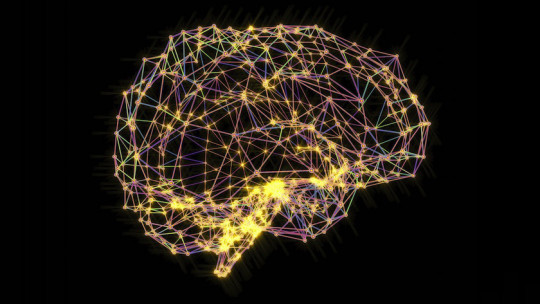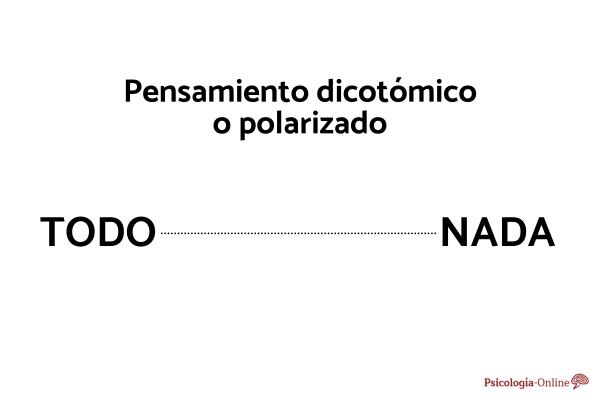We have known for a long time that it is not the events themselves that trigger our emotions but the interpretation we make of them. That is, how we perceive them and how we interpret them
Behind every feeling of sadness, anger, fear or anguish there may be a thought that is hiding or disguising reality. This is why in certain disorders such as depression, anxiety or phobias, cognitive distortions play a main role.
In this article We will explain what are the most frequent types of cognitive distortions and what each of them consists of.
Brain tricks and cognitive distortions
Therefore, it is vitally important to stop and think about the validity of these thoughts, since we could be suffering from unreal causes.
The human mind is very complex and sometimes we get lost in it and are not able to differentiate reality from fiction.
What are cognitive distortions and how do they affect us?
Cognitive distortions are erroneous interpretations of reality that lead the individual to perceive the world in a non-objective, as well as dysfunctional, way. They occur in the form of automatic thoughts and trigger negative emotions that give rise to unwanted or maladaptive behaviors.
In this way, a loop is generated, because these dysfunctional behaviors end up reinforcing the cognitive schemes that generated them, so that the dynamic is maintained or even intensified.
Characteristics of cognitive distortions
Types of cognitive distortions, and examples
There are a large number of cognitive errors that people make over and over again Below I will describe some of the most frequent ones, with an example to make it easier to understand them.
These are the types of cognitive distortions.
1. Overgeneralization
Following an isolated case, generalize a conclusion valid for everything Example: “Juan has not written to me, people always forget about me.”
2. Selective abstraction
Focusing in “tunnel vision” mode only on certain aspects, usually negative and disturbing, of a circumstance or person, excluding the rest of its characteristics and overlooking the positive aspects of them. Example: “I overdid the salt in the macaroni, I’m a horrible cook.”
3. Arbitrary inference
Making judgments or drawing conclusions quickly or impulsively, based on incomplete or erroneous information. Example: “She tells me no to play hard to get, women are like that.”
4. Confirmatory bias
Tendency to interpret reality in a way that confirms our previous beliefs Example: “I was wrong, if I already knew that I am not good for this.”
5. Fallacy of divine reward
Thinking that in the future the problems will improve on their own without taking a proactive attitude. Example: “My boss is exploiting me, but I’m calm because time puts everyone in their place.”
6. Thought reading
Presuppose the intentions or cognitions of others Example: “they look at me because I’m making a fool of myself.”
7. Fortune Teller’s Error
Believe you know what the future will be like and act accordingly Example: “I’m not going to go to that job interview because I know they’re not going to hire me.”
8. Personalization
Assume that everything people do or say has to do directly with you Example: “Marta has a bad face, she must be angry with me.”
How to end cognitive distortions?
Cognitive distortions can be modified once they have been detected.
There are techniques in psychotherapy that directly affect this type of distortions, and they are called cognitive restructuring techniques. In them, the professional helps the individual identify the erroneous beliefs that he has developed about the world, and subsequently both work together to develop thoughts and alternative ways of interpreting situations.
So, The psychologist helps the person learn to question the validity of their own cognitive schemes and replace them with more realistic alternative thoughts, which will make you feel more positive emotions and therefore will be favorable when it comes to having more useful behaviors to live in greater harmony with your environment.










